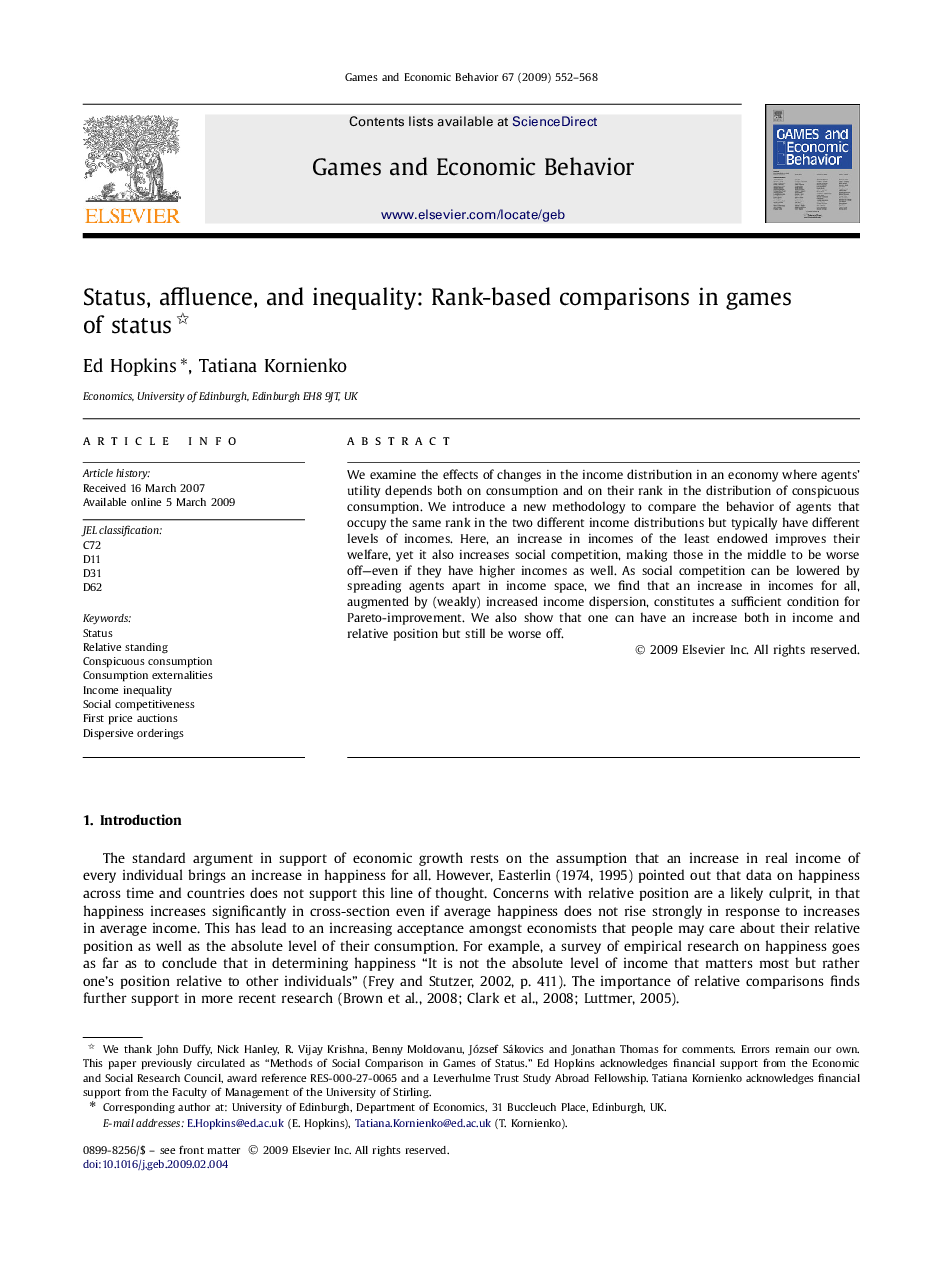| Article ID | Journal | Published Year | Pages | File Type |
|---|---|---|---|---|
| 5072751 | Games and Economic Behavior | 2009 | 17 Pages |
We examine the effects of changes in the income distribution in an economy where agents' utility depends both on consumption and on their rank in the distribution of conspicuous consumption. We introduce a new methodology to compare the behavior of agents that occupy the same rank in the two different income distributions but typically have different levels of incomes. Here, an increase in incomes of the least endowed improves their welfare, yet it also increases social competition, making those in the middle to be worse off-even if they have higher incomes as well. As social competition can be lowered by spreading agents apart in income space, we find that an increase in incomes for all, augmented by (weakly) increased income dispersion, constitutes a sufficient condition for Pareto-improvement. We also show that one can have an increase both in income and relative position but still be worse off.
